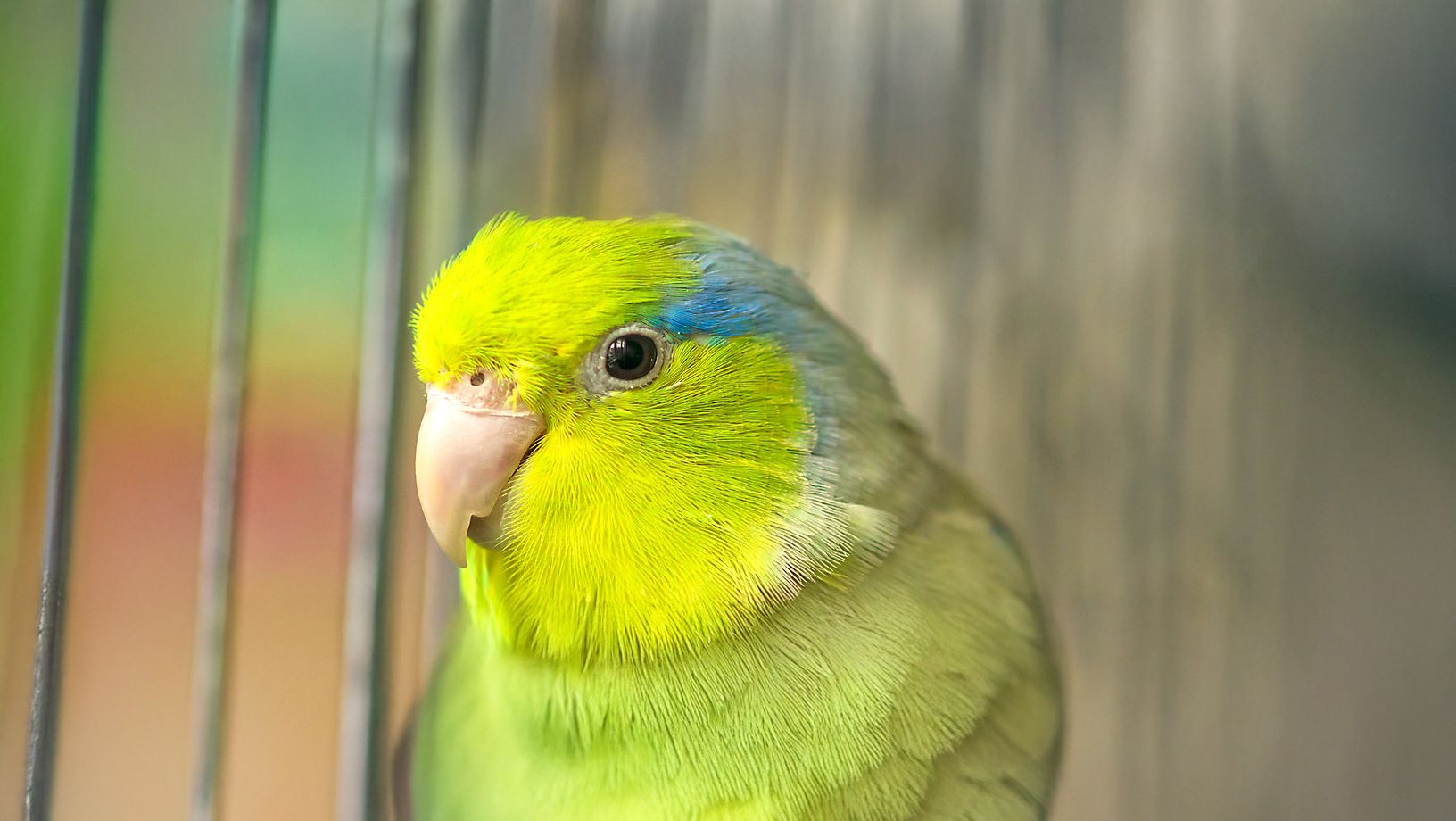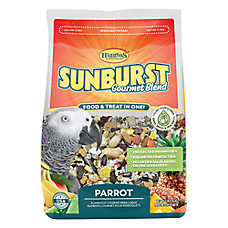A Set-up guide for Your New Pet Parrotlet

In this Article
Five things to know about your parrotlet
- Parrotlets are the smallest kind of parrot
- They can live up to 20 years
- They’ll grow up to 5 inches long
- They need at least two hours of daily interaction with their pet parents
- Parrotlets are not usually noisy birds, making them great apartment birds.
Your parrotlet’s home
- Parrotlets are social birds that can live in pairs. Keep them in a cage large enough for them to stretch their wings, climb and play. The bigger the cage the better, especially if the cage will house two parrotlets.
- Provide at least two perches of different thickness and materials. Variations help keep parrotlet feet strong and healthy. The perches should be placed at different heights.
- Don’t put perches over food or water dishes or droppings will make a mess where your pet eats and drinks.
- Birds are sensitive to smoke, gases, strong smells and drafts. Keep your parrotlet’s cage away from the kitchen and open windows. Don’t place the cage in direct sunlight.
- Line the enclosure floor with recycled-paper bedding or use a paper liner. Spot clean and replace the liner at least every other day and fully change it out at least weekly.
Playing & grooming
- Parrotlets are smart and with practice, they can learn some tricks like “step up” and “step down.” Some can also mimic human speech.
- Inside the cage, keep your parrotlet busy with at least two or three different toys, including foraging puzzles and squeakers. Always introduce new toys on a frequent basis.
- Two or three times a week, put a bowl of warm water in the cage so your parrotlet can take a bath. Alternatively, you can gently mist your bird with warm, clean water from a spray bottle.
Keeping your parrotlet healthy
Try not to handle new parrotlets for three or four days after bringing them home, to give them time to adjust.
Even a settled-in bird can feel sick. Aside from annual check ups, talk to an avian veterinarian if you have questions about your bird’s health or if you notice any of these signs of illness or distress:
- Decreased appetite or weight loss
- Decreased activity or grooming
- Feathers fluffed up and acting sleepy
- Long periods sitting at the bottom of the cage
- Sneezing
- Discharge from nose or mouth
- Change in droppings for more than two days
PETSMART CARES
Pets purchased at PetSmart are part of our exclusive Vet Assured™ program, designed by PetSmart veterinarians to help improve the health and well-being of our pets. Our vendors meet a high standard in caring for pets and screening them for common illnesses. This program also includes specific standards for in-store pet care.
The PetSmart Promise: If your pet becomes ill during the initial 14-day period, or if you’re not satisfied for any reason, PetSmart will gladly replace the pet or refund the purchase price.
